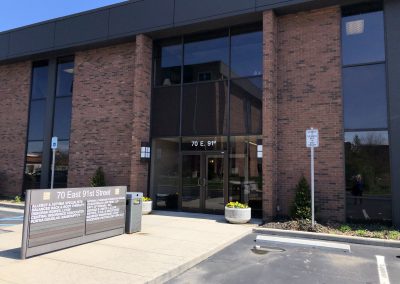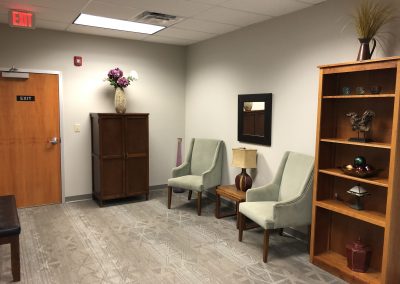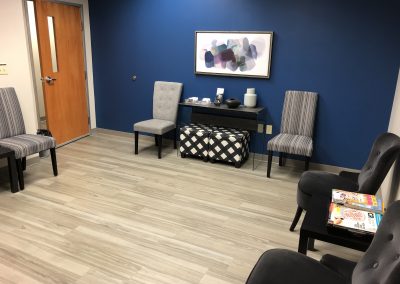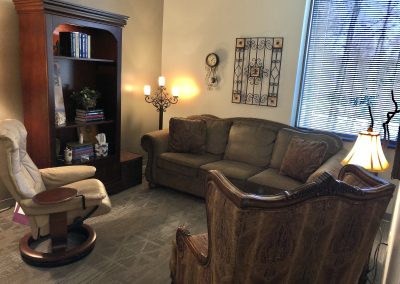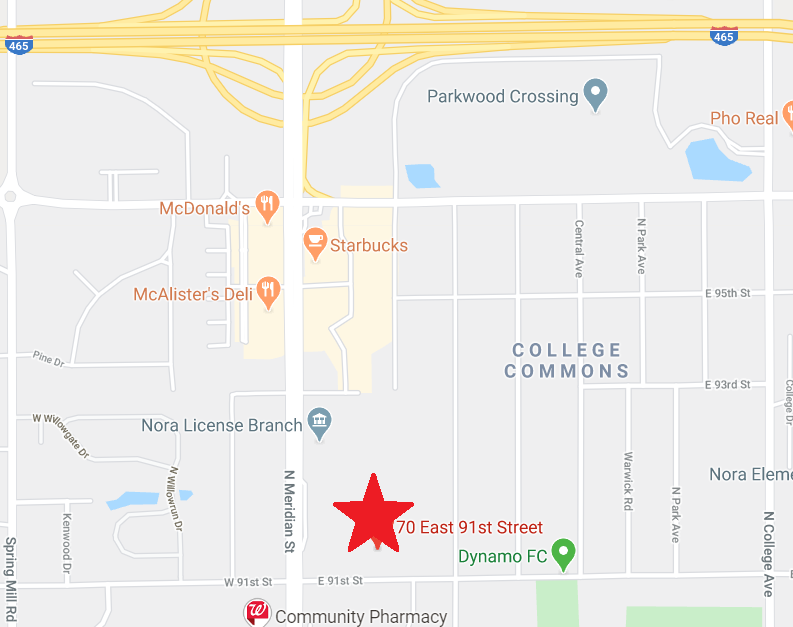Melanie K. Stone, Ph.D
“Your life is your story…write well, edit often.”
-Susan Statham
Do you feel overwhelmed, worried, or sad, and don’t know where to turn? Is the way you are feeling affecting your relationships, your work, your sleep?
I help people like you everyday. Through the counseling process, you can begin to understand the struggles you are experiencing, and learn more effective ways of dealing with and resolving some of the difficulties in your life.
Dr. Melanie K. Stone, Ph.D.
I have a Ph.D. in Counseling Psychology and I am a member of the American Psychological Association. I am licensed in the State of Indiana and I am an Indiana State Psychology Board Certified Health Service Provider (H.S.P.P.).
I work with children, adolescents, adults, and couples, focusing on the treatment of depression and anxiety, as well as marriage enrichment. Parenting skills training and general parent-child concerns are a significant part of my practice. I am trained in the use of EMDR (Eye Movement Desensitization and Reprocessing) for disturbing and traumatic life events, as well as biofeedback, teaching relaxation and stress management strategies to deal with a variety of emotional and physical symptoms.
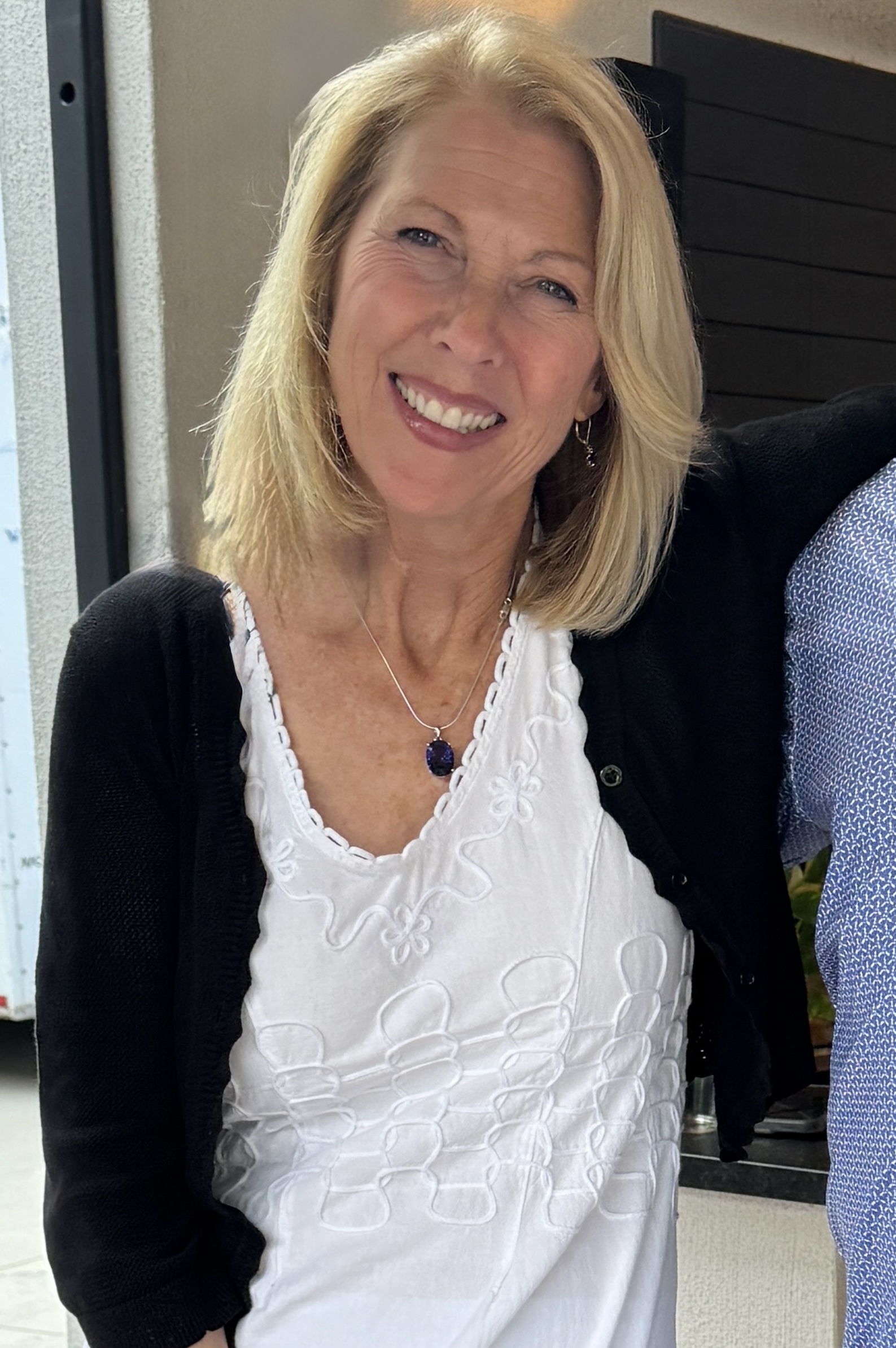

What To Expect
For many people, the counseling experience is something new and unfamiliar. My approach to counseling is from a cognitive-behavioral perspective. This means that I help people understand how their thoughts affect their emotions and behavior. Counseling is focused on ways to approach difficult life issues in more positive, productive ways.
In the initial session, we will discuss your expectations and goals for counseling, and I will share my recommendations and answer questions about the counseling process. Many people who seek psychological services report improvement after six to ten sessions. Sessions are generally 45 minutes long, and are initially set up on a weekly basis.
Full payment is due at the end of each session. I am dedicated to keeping my fees reasonable and within the limits of customary charges for counseling sessions. Many insurance companies provide for counseling as a part of their health benefits package. You will be given a receipt after each session that will include the necessary information that your insurance company will need if you choose to submit for reimbursement. Please see the document titled “Obtaining Health Insurance Reimbursement” in the Forms section.
Services
Treatment of Anxiety and Depression
Treatment focuses on strategies that help you find relief from many of the symptoms of anxiety and depression.
Marriage and Relationship Enrichment
Better understand the sources of conflict in your relationship and develop communication skills to more openly and effectively solve problems.
Parenting Issues
Establish more effective ways to deal with common parenting challenges and develop a more cohesive partnership with your spouse.
Biofeedback and Relaxation Training for Stress and Pain Management
Teaches awareness, relaxation skills, and ways to manage anxiety, as well as ways to recognize, reduce and control stress responses.
Disturbing or Traumatic Life Events
Trained in the use of EMDR to treat a variety of disburbing life experiences.
EMDR ( Eye Movement Desensitizing and Reprocessing)
EMDR is a treatment that enables people to heal from the symptoms and emotional distress that are the result of disturbing life experiences.
What is EMDR?
Francine Shapiro developed Eye Movement Desensitization and Reprocessing (EMDR) in 1987; it initially was used as a way to treat Post Traumatic Stress Disorder, but it has been found to be an effective treatment for a wide range of mental health problems. Research has found that the mind has a tendency to heal itself naturally, in the same way as the body does. Much of this natural coping mechanism occurs during sleep, particularly during rapid eye movement (REM) sleep.
What happens when you experience a trauma?
Most of the time, your body routinely manages new information and experiences without you being aware of it. However, when something out of the ordinary occurs and you are traumatized by an overwhelming event (e.g. a car accident) or by being repeatedly subjected to distress (e.g. childhood neglect or abuse), your natural coping mechanism can become overloaded. This overloading can result in disturbing experiences remaining frozen in your brain or being “unprocessed”. These traumatic memories can be triggered when you experience events similar to the difficult life events from your past. Often the memory itself is long forgotten, but the painful feelings such as anxiety, panic, anger or despair are triggered in the present. EMDR helps to connect traumatic memory networks to more adaptive memory networks, enabling your brain to process the traumatic memory in a healthier way.
What is an EMDR session like?
You and your therapist will target a certain disturbing memory. Eye movements similar to those during REM sleep will be recreated simply by asking you to watch a light moving backward and forward across your visual field. After a short time you will be asked to report back on what you noticed during the set of eye movements. Things noticed may include changes in thoughts, images and feelings. With repeated sets of movements, the memory tends to change in such a way that it loses its painful intensity and simply becomes a neutral memory of an event in the past. Other associated memories may also heal at the same time. This linking of related memories can lead to a dramatic and rapid improvement in many aspects of your life. Positive effects have often been seen after just one session of EMDR.
What can EMDR be used for?
In addition to its use for the treatment of Post-Traumatic Stress Disorder, EMDR has been successfully used to treat anxiety and panic attacks, grief and loss, depression, phobias, performance anxiety, and sleep problems.
What will the experience be like for me?
During EMDR treatment, you will remain in control, fully alert and awake. This is not a form of hypnosis and you can stop the process at any time. Reprocessing is usually experienced as something that happens spontaneously, and new connections and insights are felt to arise quite naturally from within. As a result, most people experience EMDR as being a natural and very empowering therapy.
What evidence is there that EMDR is a successful treatment?
EMDR is an innovative clinical treatment which has successfully helped over a million individuals. The American Psychiatric Association, The American Psychological Association, The International Society for Traumatic Stress Studies, The Department of Defense, and The Veteran’s Administration all recognize EMDR as an effective treatment for PTSD. For further information about EMDR, visit www.emdria.org or www.
EMDR Resources

EMDR International Association

EMDR Therapy: Everything You Need to Know

EMDR Institute Inc.
Client Paperwork
Training and Credentials
Education
Ph.D. Counseling Psychology
July 1991 – Ball State University – Program approved by the American Psychological Association.
M.A. Pre-Counseling Psychology
August 1987 – Ball State University
B.A. Psychology – with Honors
May 1985 – Indiana University
Work Experience
Stone PhD, LLC September 2007 to present
Work with children, adolescents, adults, and couples, focusing on the treatment of depression
and anxiety, marriage enrichment, and marriage and family life with a special needs child.
Parenting skills training and general parent-child concerns are a significant part of current
practice. Trained in the use of EMDR (Eye Movement Desensitization and Reprocessing) for
disturbing and traumatic life events, as well as Biofeedback, teaching relaxation and stress
management strategies to deal with a variety of emotional and physical symptoms.
Health Associates – Psychologist, Business Partner – Indianapolis, IN, July 1991 to August 2007
Partnership with two other psychologists; ran a large private practice of psychologists,
counselors and staff. Provided outpatient counseling services for all ages in individual, marital,
family, and group modalities. Trained in behavioral medicine/health psychology, with an
emphasis on biofeedback and relaxation. Offered a biofeedback and stress management
program for children, adolescents, and adults who are suffering from chronic pain, stress-related
illnesses and general anxiety. Personality and intelligence testing provided for adolescents and
adults.
Quinco Consulting Center – Doctoral Internship accredited by the American Psychological
Association – Columbus, IN -September 1990 through August 1991.
Gained considerable experience in both inpatient and outpatient psychological assessment.
Trained in the methods and techniques of Behavioral Medicine/Health Psychology. Operating
from a multidisciplinary team approach, I was charged with responsibilities including inpatient
individual and group therapy and continuing care for the chronically mentally ill. Provided
intensive outpatient counseling services in individual, marital, family, and group modalities.
Quinco Consulting Center (cont.) Co-facilitated a chronic pain group, a depression group,
and an adolescent therapy group for court-referred teens. Provided alcohol assessment services
for Decatur County Municipal Court. Developed a stress management workshop and presented
to parents of the Super Saturday students at Milan Elementary School, and to a class of
Emergency Medical Technicians at the Bartholomew County Hospital.
Counseling and Psychological Services Center – Therapist -Ball State University, October
1989 to May 1990.
Provided individual, marital and family therapy for students attending Ball State University.
Conducted intake sessions and attended case staffings regularly. Active participant of the
Outreach Program for students, concerning issues such as self-esteem, social skills, relationship
concerns, family communication, and coping with the holidays. Developed a Couples
Relationship Enrichment Group for Ball State students. Pursued my interest and developed my
expertise in personality assessment and career counseling through the Center as well.
Ball State University Department of Counseling Psychology -Therapy Supervisor
Provided approximately 400 hours of counseling supervision and skills training for beginning
and advanced master’s level practicum students.
Quinco Consulting Center – Crisis Staff Specialist – May to August 1989.
Provided on-call crisis services to the community, including consultation work at the
surrounding hospitals and county jails. Provided individual and group counseling services for
both adults and adolescents receiving inpatient care.
Ball State Counseling Clinic – Therapist – September 1987 to May 1990.
Provided outpatient counseling services for children, adolescents, and adults in the Muncie
community in individual, marital, and family modalities.
Quinco Consulting Center – Therapist – May to August 1987.
Provided individual and group counseling services for persons receiving inpatient care. Led
therapy groups for adults on the inpatient unit.
Supervised experience
EMDR Individual and Group Supervision – Ongoing consultation and supervision for work
with clients using EMDR for trauma work. Amy Konkle MD Supervisor. (2015 – present).
Psychological Testing Team – Administered and interpreted MMPIs for clients referred to the
team by counselors in the Ball State Counseling Clinic. Jane Duckworth, Ph.D., supervisor.
Marriage and Family Therapy – Developed and initiated a couples relationship enrichment
group, supervised by co-therapist, Jay Zimmerman, Ph.D. (September 1989 to May 1990).
Career Counseling – Specialized training practicum, supervised by Virgle Ruble, Ed.D. Utilized
the following test instruments: Strong Vocational Interest Blank, Self-Directed Search, MyersBriggs Type Indicator, Eureka Skills Inventory, Kuder Occupational Interest Survey, and the
Harrington-O’Shea Career Decision Making System. (November 1989 to May 1990).
Masters Internship – Quinco Consulting Center, September to May, 1986-1987.
Provided inpatient and outpatient counseling services in individual, marital, family, and group
modalities. Facilitated a weekly women’s discussion group at Brown County High School, as well
as an inpatient self-esteem group. Provided consultation services to Head Start in Brown
County. Approximately 800 total hours of therapy, case conferences, staffings, and supervision
were completed for this internship.
Teaching
Police Academy Instructor – Indianapolis Police Academy
Course: Abnormal Crisis Behavior
Psychology Instructor – Indiana University-Purdue University at Indianapolis
Course:
B104 Psychology as a Social Science (2 terms)
Counseling Psychology Instructor – Ball State University
Course: CPSY 420 Techniques of Psychological Interventions (2 terms)
CPSY 360 Interrelational Aspects of Sexuality (3 terms)
CPSY 110 Career and Life Planning (3 terms)
Publications
Stone, M.K., & Hutchinson, R.L. (1992). Familial conflict and attitudes toward marriage: A
psychological wholeness perspective. Journal of Divorce and Remarriage, 18, 79-91.
Johnson (Stone), M., & Hutchinson, R. (1988/89). Effects of family structure on children’s selfconcepts. Journal of Divorce, 12, 129-138.
Johnson (Stone), M., & Hutchinson, R. (1989). Effects of family structure on children’s selfconcepts. In C.A. Everett (Ed.) Children of divorce: Developmental and clinical issues. New
York: Hawthorn Press.
Spangler-Hirsch, S.L., Hutchinson, R.L., Stone, M.K., & Lyons, W.J. (1991). A profile of
secondary school students experiencing at-risk factors in a midwestern public school. Journal of
Educational Opportunity, 6, 15-22.
Presentations
Kids with Special Needs: The Effects on Marriage, Siblings, and the Family as a Whole (2012).
Presentation given at the Down’s Syndrome National Conference.
Kids with special needs: The effects on marriage, siblings, and the family as a whole. (2010).
Presentation given at the FUSE Inspiring Abilities Expo 2010.
The Keys to Living Life Well (2008)
Presentation given at the Riverview Hospital Women’s Retreat
The psychological impact of having a child with special needs: A provider’s guide (2009).
Presentation given at St. Vincent’s Hospital Staff Breakfast.
Recapturing the Joy of the Holidays (2009).
Presentation given at the Eli Lilly and Company Brown Bag Lunch.
Special Child, Special Marriage (2009).
Presentation given at the Isodicentric 15 IDEAS Conference.
These special children: The joys and challenges of the journey for the families who love them
(2009).
Presentation given at the Eli Lilly and Company Brown Bag Lunch.
Biofeedback and Stress Management (1993).
Lecture given at the Spring Conference of the Indiana Section of the Professional Golfers of
America.
Relationships and Anger (1992).
Lecture presented to the St. Lukes Singles Group.
Familial conflict and attitudes toward marriage: A psychological wholeness perspective (1991).
Oral presentation given at the Midwestern Psychological Association Conference, Chicago, IL.
Problem solving instruments: An empirical comparison (1990).
Paper presented at the American Psychological Association Conference, Boston, Mass.
Effects of family structure on children’s self-concepts (1986).
Paper presented at the Indiana Psychological Association Fall Conference, Indianapolis IN.
Dissertation
Familial conflict and attitudes toward marriage: A psychological wholeness perspective. Oral
defense successfully passed in July, 1990. Manuscript accepted for publication in the Journal of
Divorce and Remarriage. Presented at the Midwestern Psychological Association Conference,
May 1991.
Professional Memberships and Activities
American Psychological Association, 1986 to present.
Awards and Honors
Graduate Student Research Grant Competition Winner
Awarded a research grant for application to the work conducted on my dissertation.
Research Travel Grant
Awarded a travel grant for my research presentation at the American Psychological Association
Conference in Boston, August 1990.
References
Available upon request
Mental Health Assistance
For patients and family members in need of immediate assistance:
St. Vincent’s Stress Center Crisis Line 1-317-338-4800
National Suicide Prevention Lifeline: Call 1-800-273-8255.
Crisis Help Line: Call 1-800-233-4357
Crisis Text Line: Text CONNECT to 741741
Disaster Distress Helpline: Call 1-800-985-5990. Text TalkWithUs to 66746
